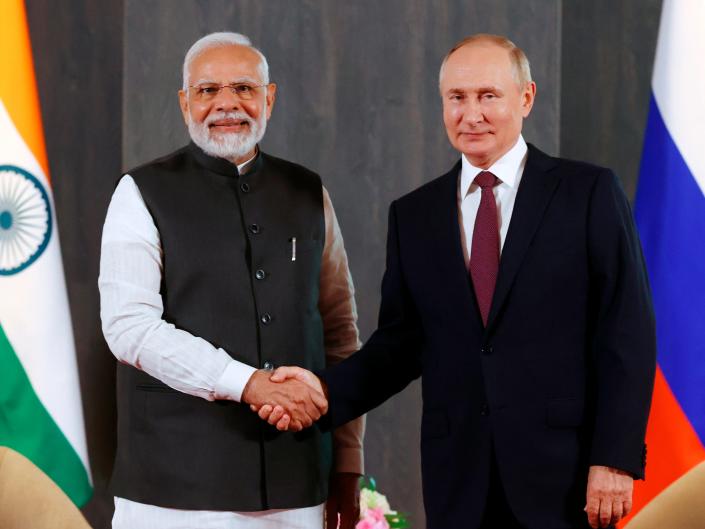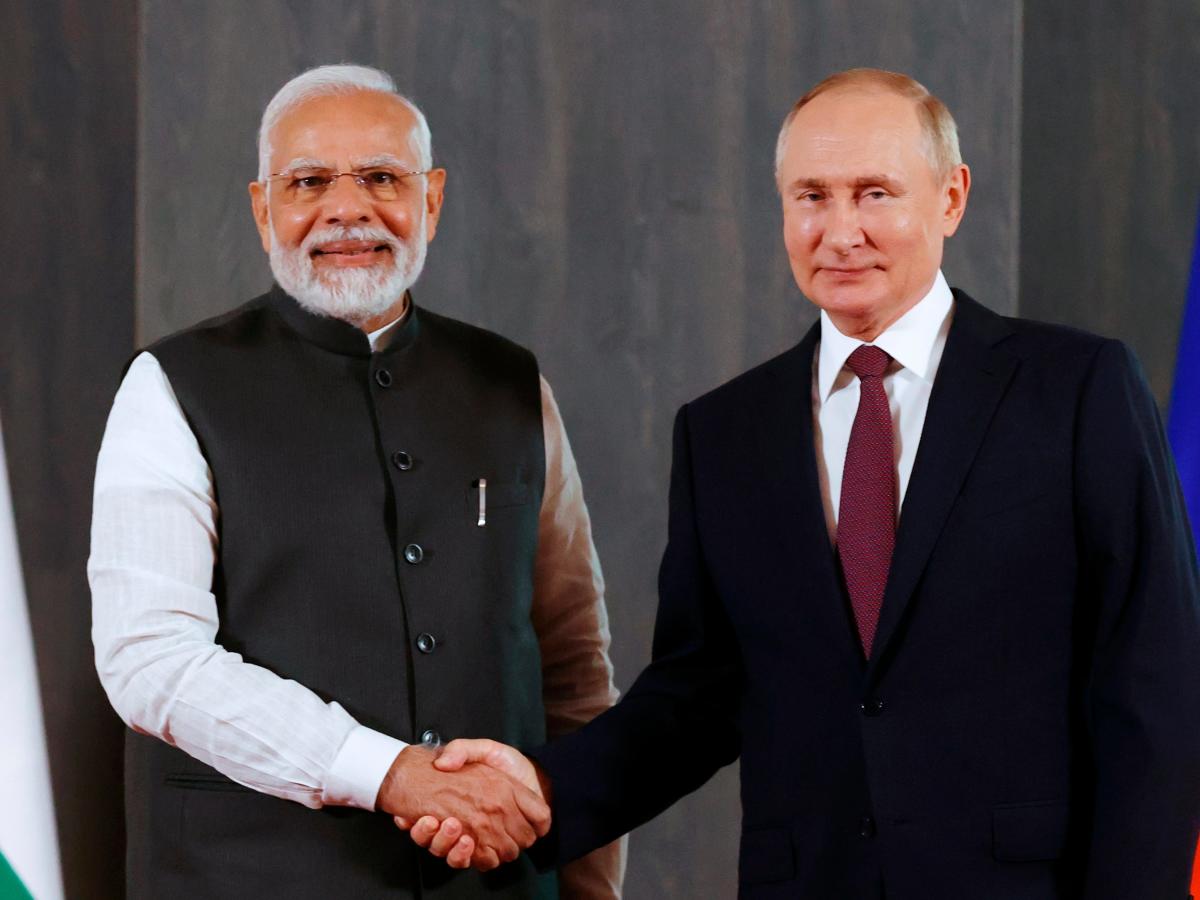
-
Some of Putin’s global partners last week expressed concern about his war in Ukraine.
-
Days later, Putin escalated the war by announcing military mobilization and threatening nuclear war.
-
A Russian expert told Insider Putin may have acted out of fear of straining relations with countries like China and India.
Russian President Vladimir Putin escalated his unprovoked war against Ukraine this week, just days after some of his alleged partners publicly expressed doubts — and the events may very well be related.
Since the invasion of Ukraine in February, Russia has been shunned by much of the world and faced with crippling sanctions from the West. But as Russia has become more isolated, some countries have supported Putin or avoided condemning him directly.
Both China and India have been powerful partners of Russia throughout the war, refusing to impose sanctions and continuing to buy the country’s energy products. However, the leaders of both countries recently took the rare step of speaking out against the war.
During a meeting with Chinese President Xi Jinping in Uzbekistan on Sept. 15, Putin acknowledged that Xi had “questions and concerns” regarding the war. The next day, Indian Prime Minister Narendra Modi criticized the war during a face-to-face meeting with Putin.
“I know that the current era is not an era of war, and I spoke to you on the phone about this,” Modi told Putin, Reuters reported.
Putin replied: “I am aware of your position on the conflict in Ukraine and I am aware of your concerns. We want this all ended as soon as possible.”
Less than a week later, on Wednesday, Putin said he was calling on 300,000 reservists to join the fight, something he had avoided for fear of backlash among the Russian people. The announcement, in which he also threatened the use of nuclear weapons, came after the Ukrainian military made huge gains in recent weeks.
Experts told Insider it would take weeks or months for the mobilized troops to be trained, equipped and deployed. They also said Putin’s decision to take this step now showed how badly the war was going for Russia and how desperate the Russian leader was to turn the tide.
“That Putin would do this shows how badly he feels the need to change momentum now, which has all been in Ukraine’s favor,” Daniel Treisman, a professor at the University of California, Los Angeles, whose work has focused on focuses on Russian politics and economics, Insider told.
In addition to fears of another possible Ukraine counter-offensive, Putin was also likely driven by Xi and Modi’s concerns — and his fear of losing key partners — according to Robert English, a professor at the University of Southern California who has taught Russia, the Soviet Union, studies, and Eastern Europe.
“Evidence of criticism of allies like China or neutral states like India clearly put more pressure on him,” Engels told Insider. He added that leaders of those nations appear to have told Putin that they did not approve of the situation in Ukraine because it damaged their reputation on the world stage and cost them economically and politically.
English said what he suspects Putin heard was, “‘Find a way to settle this quickly, to end this war, because we won’t be by your side of this brutality for another six months.'”
“He heard a message like that, so he’s trying to raise the bar,” said English. “He’s trying to change the military balance as best he can.”
If Putin has mobilized troops in an effort to end the war as quickly as possible, as he assured Modi he would try to do, it is not at all clear whether it will succeed.
“It is an unsatisfactory and inadequate response to the motivation, manpower and equipment on the Ukrainian side,” said Engels, explaining that military aid and intelligence from the West has given Ukraine an advantage on the battlefield. “It’s not going to do the job.”
Read the original article on Business Insider

